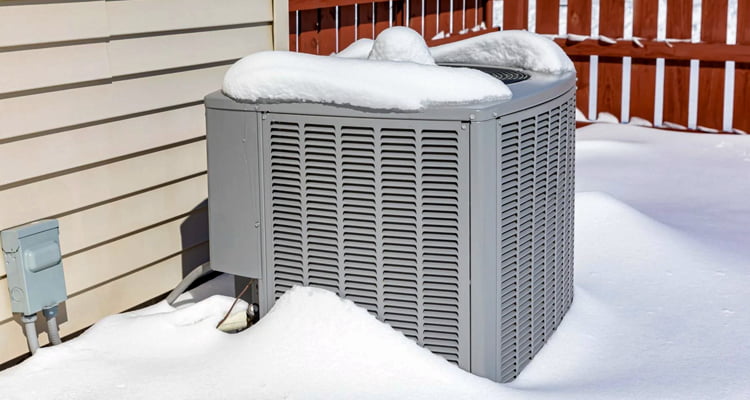
Winter HVAC Problems: Common Issues and Prevention Tips
As the cold winter months approach, the last thing you want is to be left in the cold due to HVAC problems. We understand the importance of a functional heating system during the winter season.
That’s why we’re here to share some valuable tips on how to prevent common winter HVAC problems. By taking a proactive approach, you can ensure your home stays warm and comfortable throughout the chilly season.
This blog explains how to prevent common winter HVAC problems with the help of an
expert HVAC contractor to ensure that your home remains warm and comfortable during the cold winter months.
The Role Of An HVAC Contractor
Before we dive into some specific winter HVAC problems and their prevention, it’s essential to grasp the role of an HVAC contractor. HVAC contractors are licensed professionals who specialize in heating, ventilation, and air conditioning systems.
They are trained to install, maintain, and repair HVAC systems, ensuring optimal performance and energy efficiency. Now, let’s explore some common winter HVAC problems and how you can avoid them.
1. Frozen Pipes And Components
One of the most prevalent winter HVAC problems is frozen pipes and components. When water freezes within your HVAC system, it can lead to costly damage. To prevent this issue, schedule regular maintenance with an HVAC contractor. They will inspect your system, ensure proper insulation, and replace worn-out parts to prevent freezing.
Frozen pipes can cause not only inconvenience but also significant damage to your home. A burst pipe can result in water damage and expensive repairs. HVAC contractors are well-equipped to assess the insulation around your pipes and take measures to keep them from freezing.
2. Inadequate Heating
There’s nothing worse than waking up to a chilly home in the dead of winter. To avoid inadequate heating, schedule an
annual furnace inspection before the cold sets in. An HVAC contractor will clean the furnace, replace air filters, and calibrate the thermostat for optimal heating performance.
During the inspection, an HVAC contractor will also check for any signs of wear and tear in your furnace’s components. Addressing these issues early can prevent major breakdowns during the coldest days of the year.
Also read: Signs You Need Emergency Furnace Repair Services
3. Uneven Heating
Uneven heating can result in some rooms being too warm while others are frigid. Ensure proper insulation in your home to maintain consistent temperatures. An HVAC contractor can assess your insulation and recommend improvements to ensure even heating throughout your home.
In addition to insulation, HVAC contractors can also
assess and balance your heating system’s airflow. This can further help in achieving consistent temperatures throughout your home, eliminating cold spots.
4. Carbon Monoxide Leaks
Carbon monoxide leaks can be life-threatening. To prevent this silent danger, install carbon monoxide detectors in your home. Regularly check and replace batteries, and have an HVAC contractor inspect your furnace and ventilation system to ensure they are not emitting carbon monoxide.
Regular maintenance by an HVAC contractor is crucial in preventing carbon monoxide leaks. They will check for any cracks or damage in the heat exchanger, which can be a source of carbon monoxide leaks, and address them promptly.
5. Ignition Problems
If your furnace’s pilot light frequently goes out, it can leave you without heat. An HVAC contractor can perform regular maintenance on your furnace, ensuring the pilot light is clean, and the ignition system is functioning correctly.
During maintenance, an HVAC contractor will also check the electrical components of your furnace, ensuring that there are no loose connections or faulty parts that could cause ignition problems.
6. Dirty Air Filters
Dirty air filters can reduce the efficiency of your HVAC system, leading to higher energy bills and reduced heating. Make it a habit to
replace your air filters every one to three months. Your HVAC contractor can show you how to do it or handle it during routine maintenance.
Aside from replacing air filters, HVAC contractors can also clean and inspect your entire ventilation system. This ensures that there are no blockages or obstructions that could restrict airflow and reduce the efficiency of your HVAC system.
7. Ductwork Issues
Leaky or poorly insulated ductwork can lead to heat loss, forcing your HVAC system to work harder, driving up your energy bills. An HVAC contractor can inspect your ductwork for leaks and inadequate insulation. They will seal any leaks and improve insulation to ensure that warm air reaches every room efficiently.
About Pro West Heating And Air Conditioning
Pro West Heating and Air Conditioning is your trusted partner for all your HVAC needs. With over a decade of experience, we are dedicated to keeping your home comfortable year-round. Our team of highly skilled HVAC contractors is committed to providing top-notch services, from installation to maintenance and repairs.
We take pride in our customer-centric approach, ensuring that your HVAC system is always in its best condition.
Contact us today to schedule a maintenance appointment or for emergency HVAC services.

